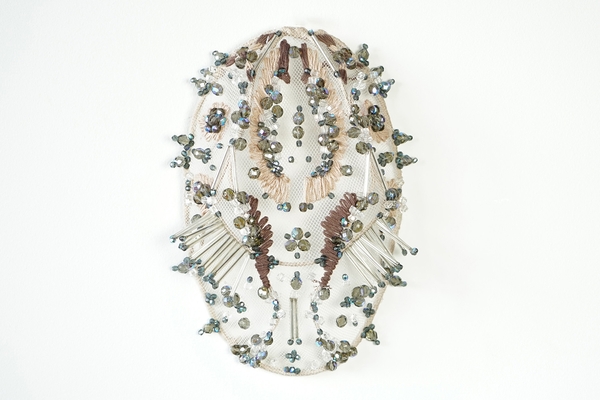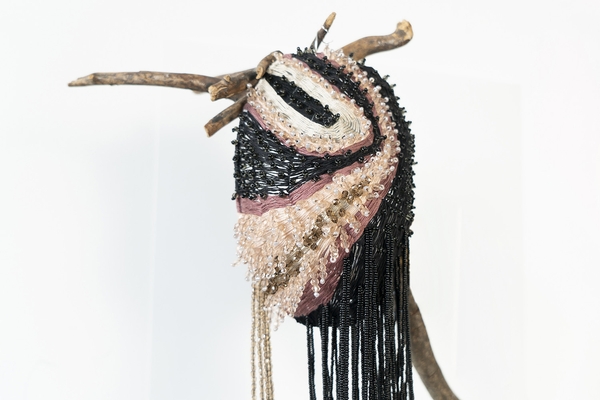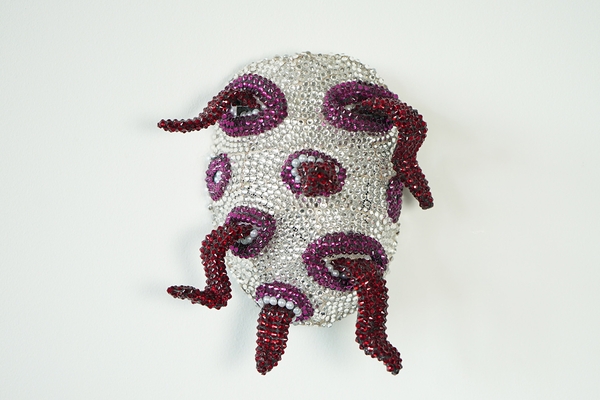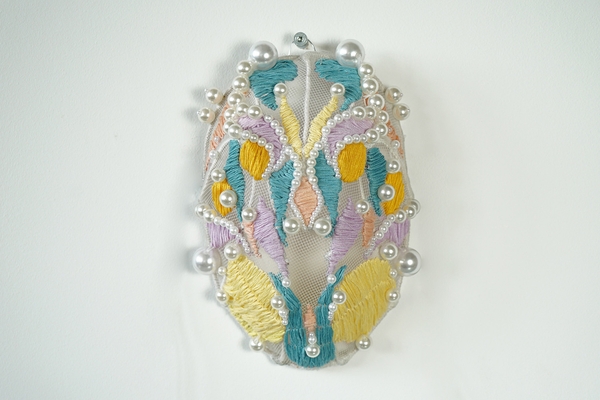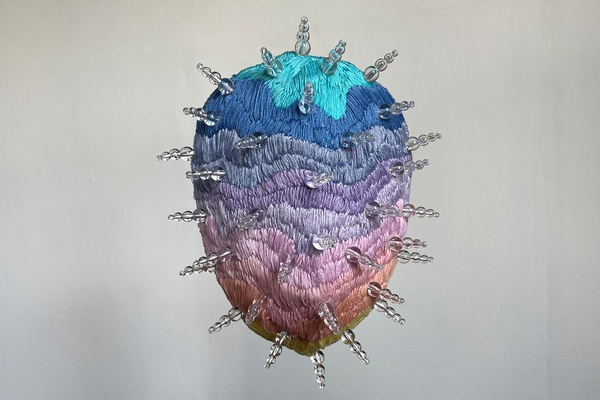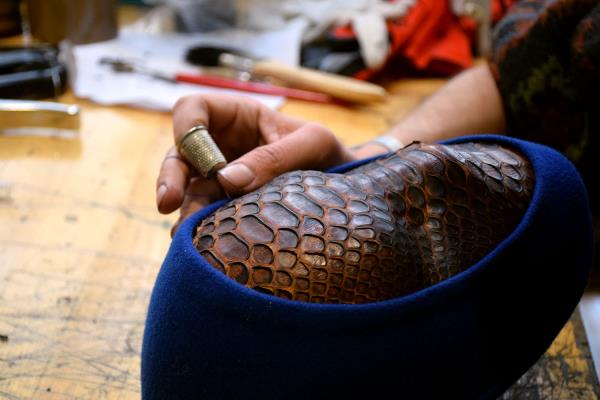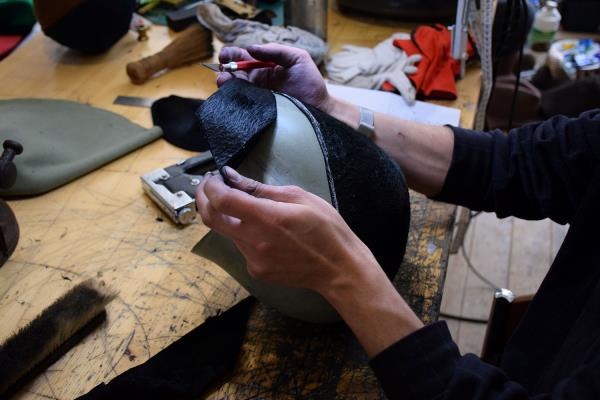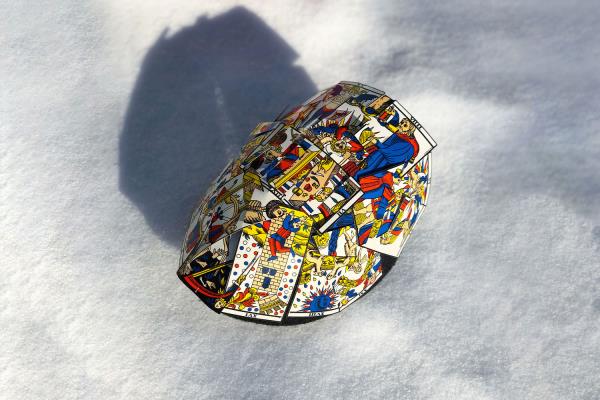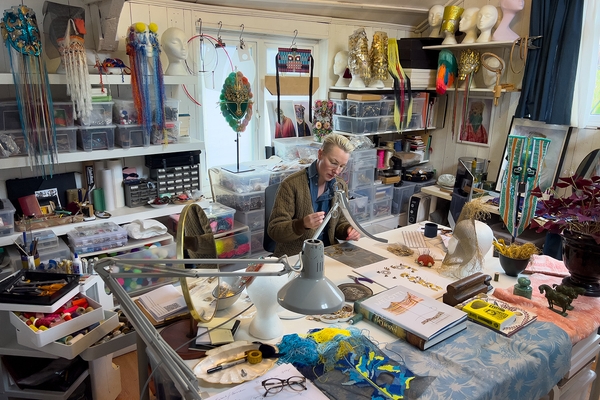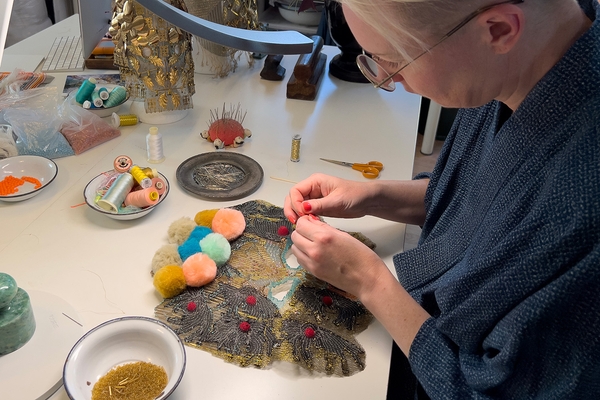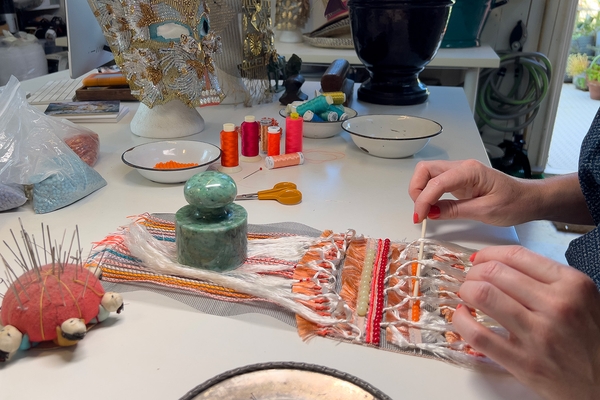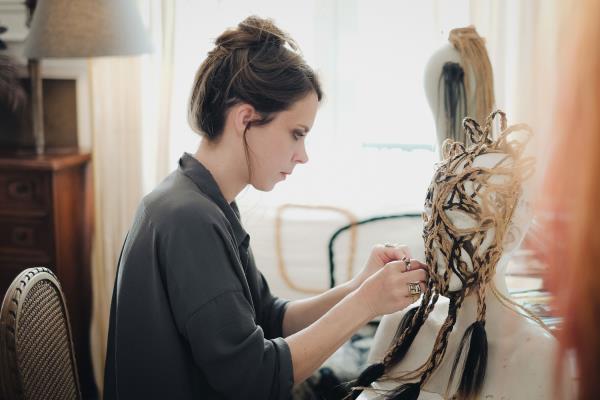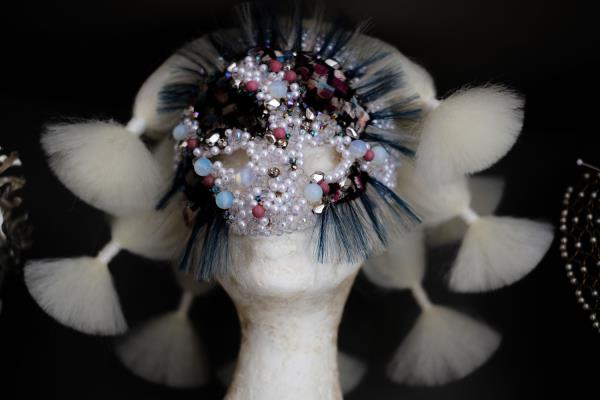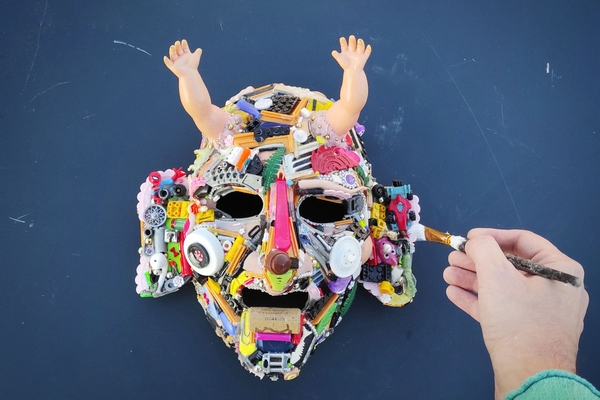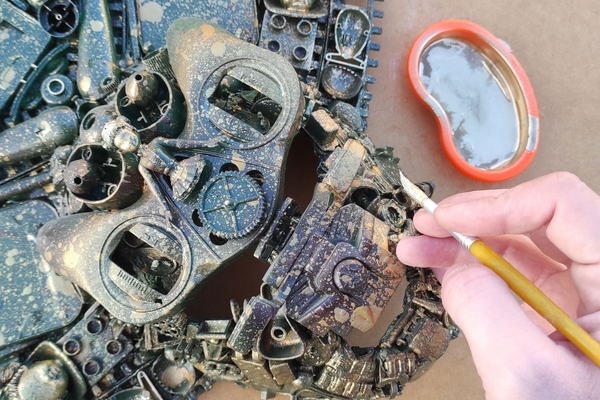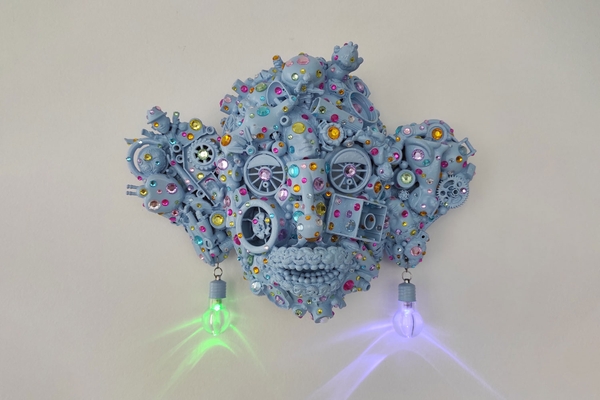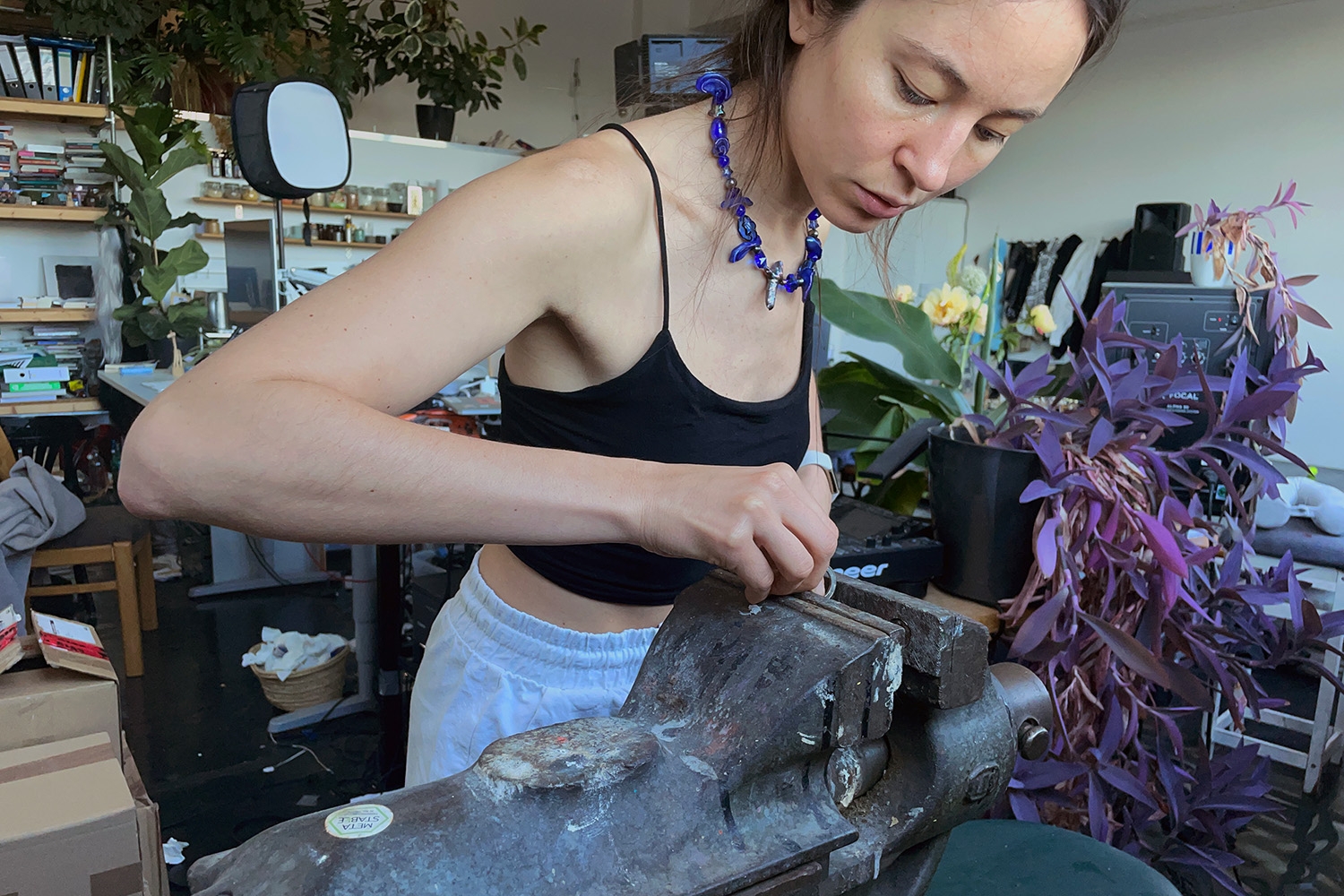
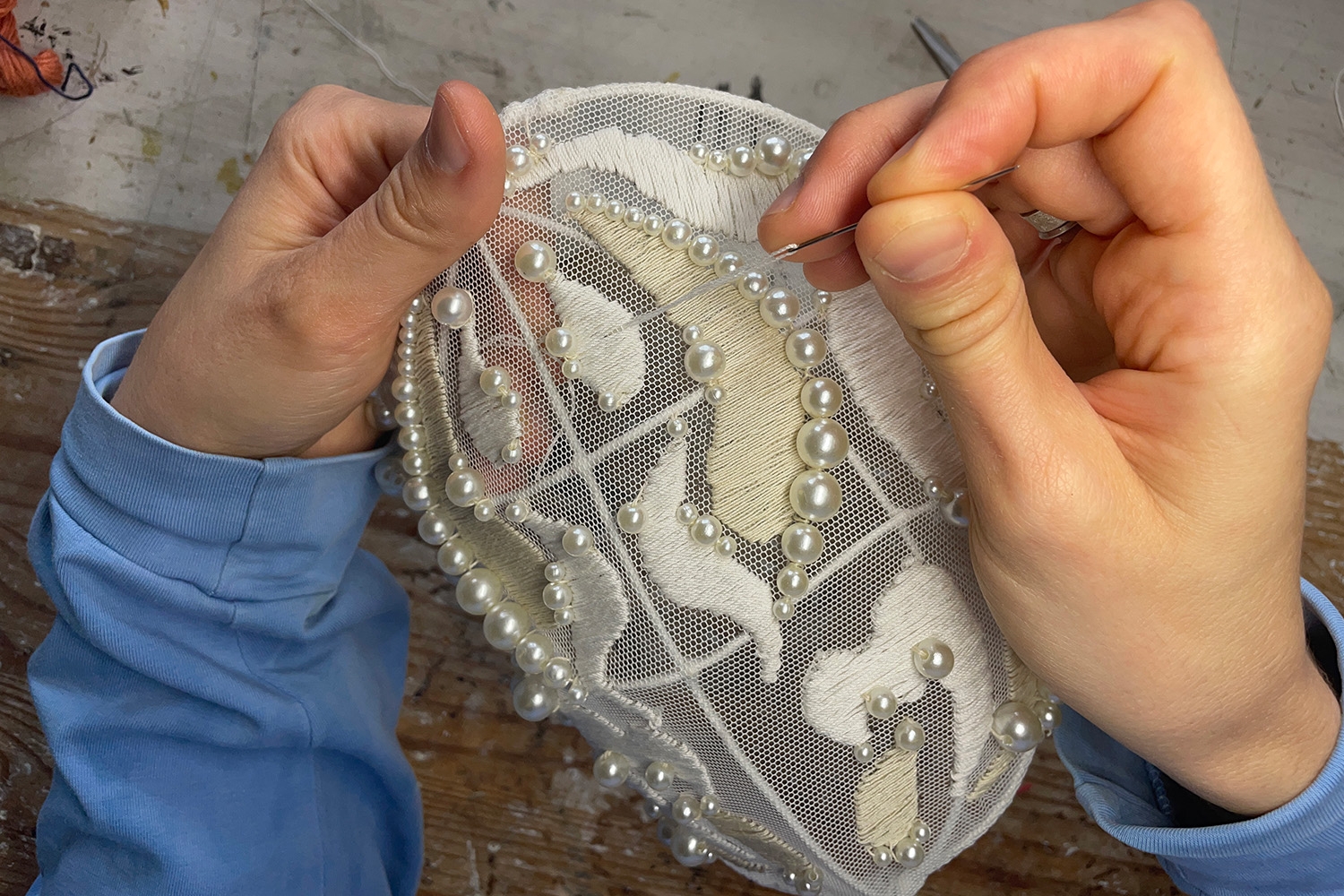
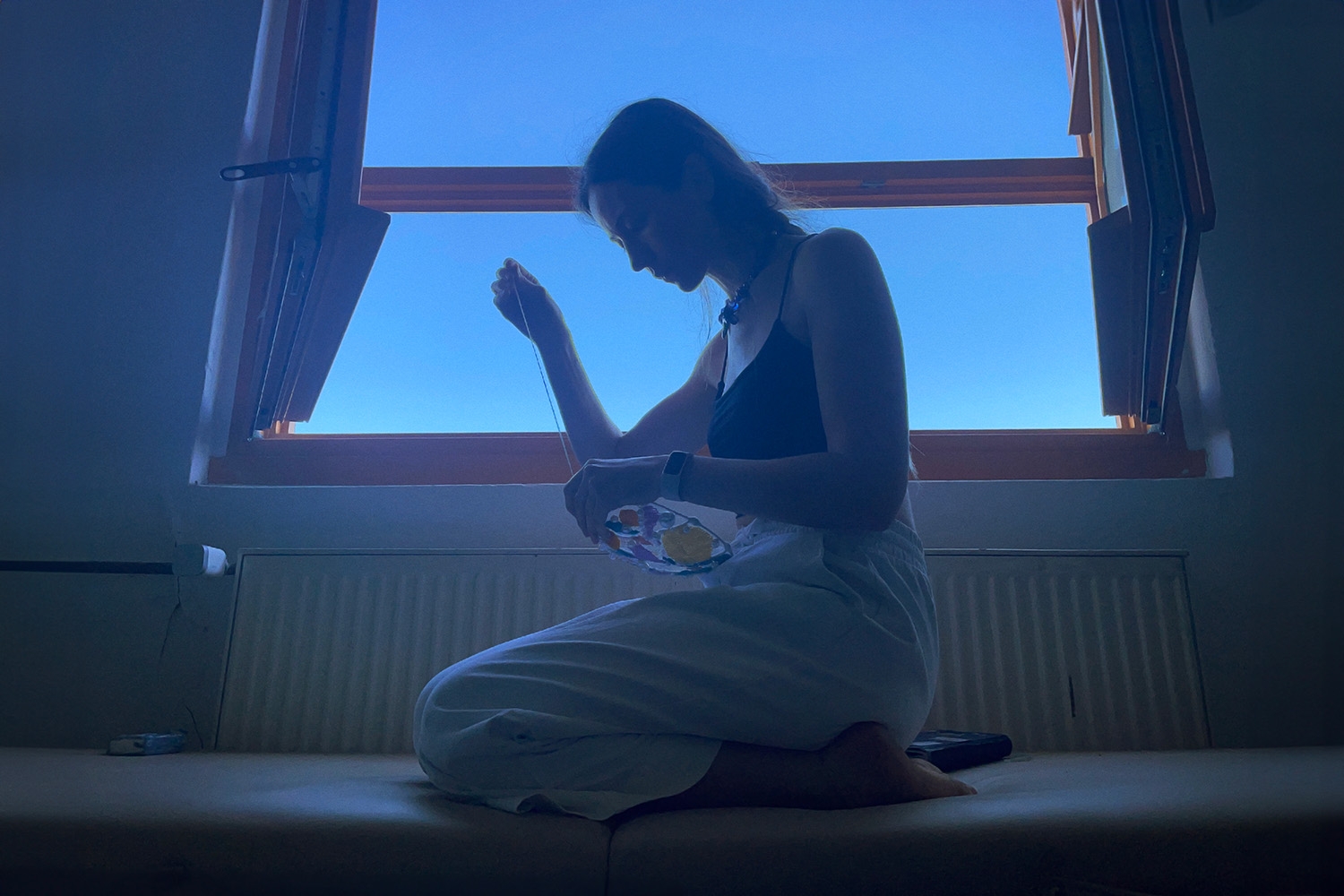
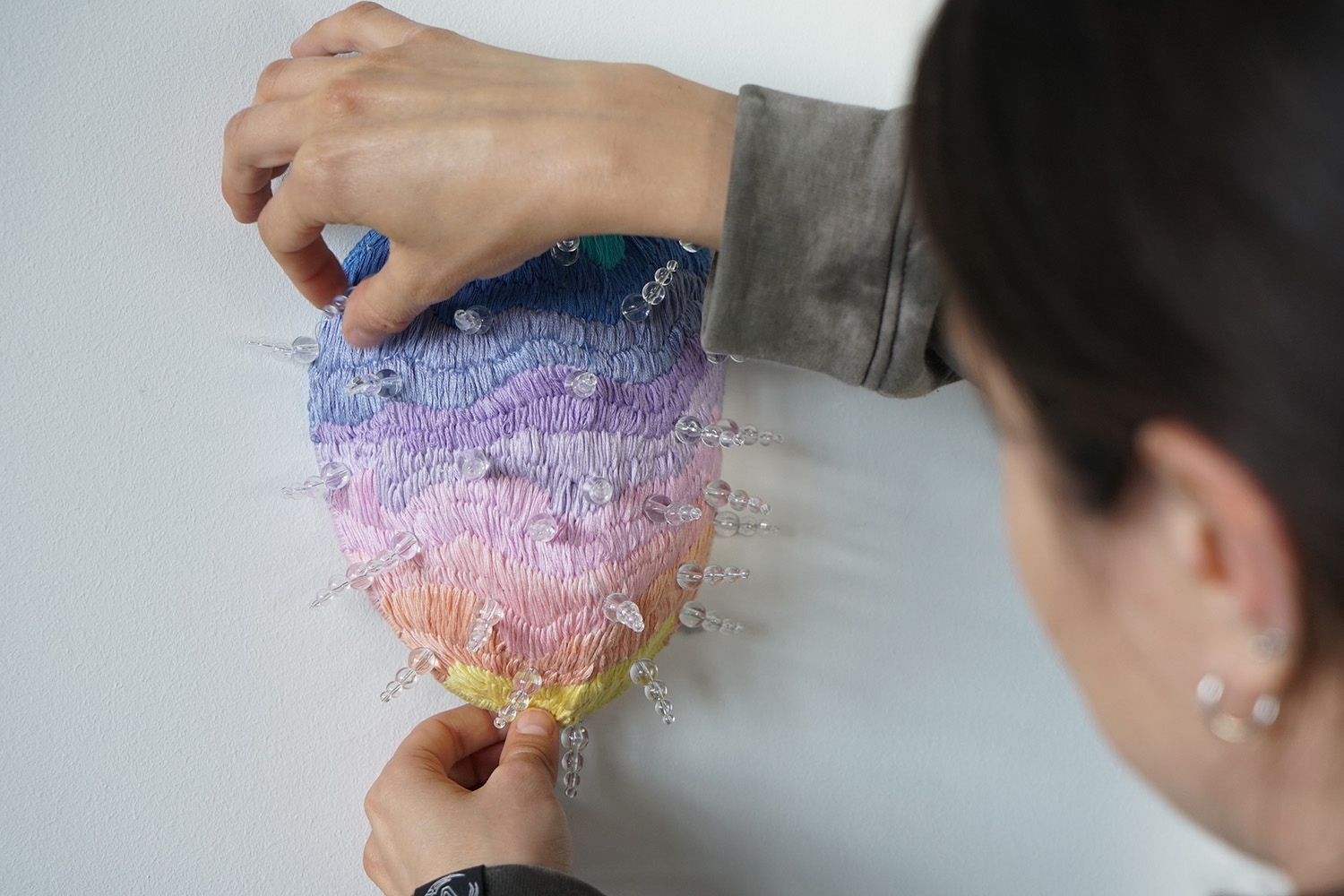
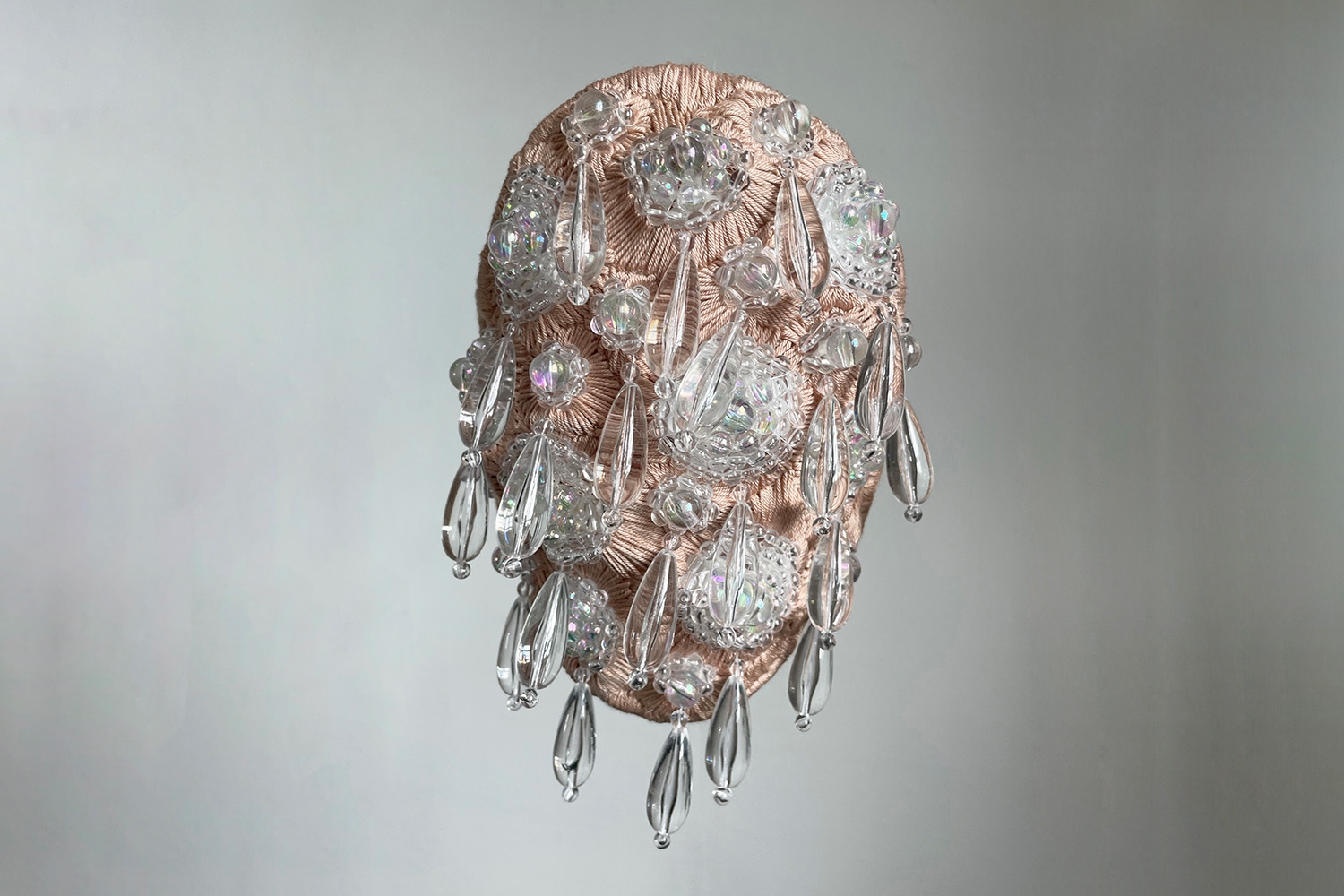





From music to rituals to art
- Anastasia started making masks for her music performances as a DJ
- Her rich cultural heritage from Yakutia and Buryatia influences her art
- She values the emotional connection her art creates with the audience
Anastasia Pilepchuk is a multimedia artist who has carved a unique niche in the world of mask making. Born in Yakutia with roots in Buryatia, her work is deeply influenced by the rich cultural heritage and shamanistic rituals of her homeland. Anastasia's journey into mask making began with her DJing career, for which she crafted a new mask for each performance. Throughout her journey, Anastasia has honed a versatile skillset, exploring a wide range of materials and techniques, such as ceramics, embroidery, plaster work, and textile. She infuses her creations with a profound human sensitivity. Her masks, often seen as wearable art or ritualistic objects, transcend function to become pieces of creative expression.
Interview
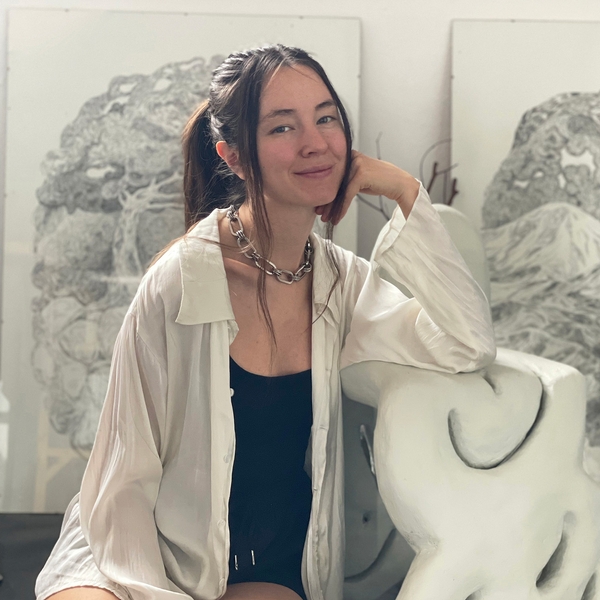
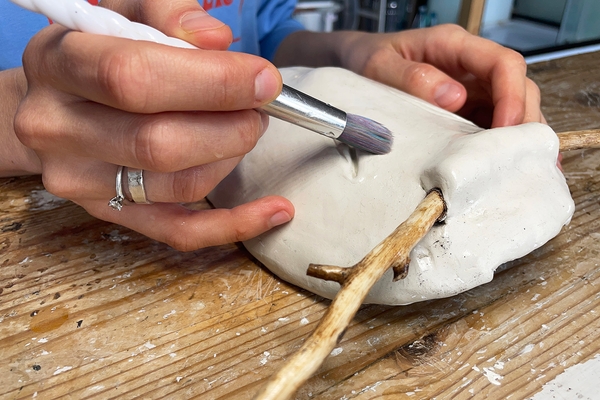
- How would you define what you do?
- I graduated in costume design and have taken art and jewellery making courses. Now, I am a multimedia artist specialising in masks. I work with embroidery, ceramics, plaster, metal, stones, and even artificial leather that I grew myself. I avoid 3D printing and AI to maintain the human element in my art.
- What was the first object you made?
- My first creations were two white masks fashioned from fabric and paper, mounted on white balaclavas I crafted from knitted lace fabric, adorned with white spikes.
- How is your craft connected to the territory where you grew up?
- I was born in Yakutia, with roots in Buryatia, where Orthodoxy, Buddhism, and shamanism coexist. Rituals and esoteric practices, including the use of masks in shamanistic rituals and colourful costumes in Buddhism, were part of my upbringing. This rich cultural heritage now deeply influences my work.
- What does well made mean to you?
- The concept of ‘well made’ applied to my work does not mean precision craftsmanship and obvious beauty. For me, a perfectly made object is empty and uninteresting. An art piece that evokes emotion and asks questions is ‘well made’ in my opinion.
Anastasia Pilepchuk is a rising star: she began her career in 2019 and she started teaching in 2018
Works
Where
Anastasia Pilepchuk
